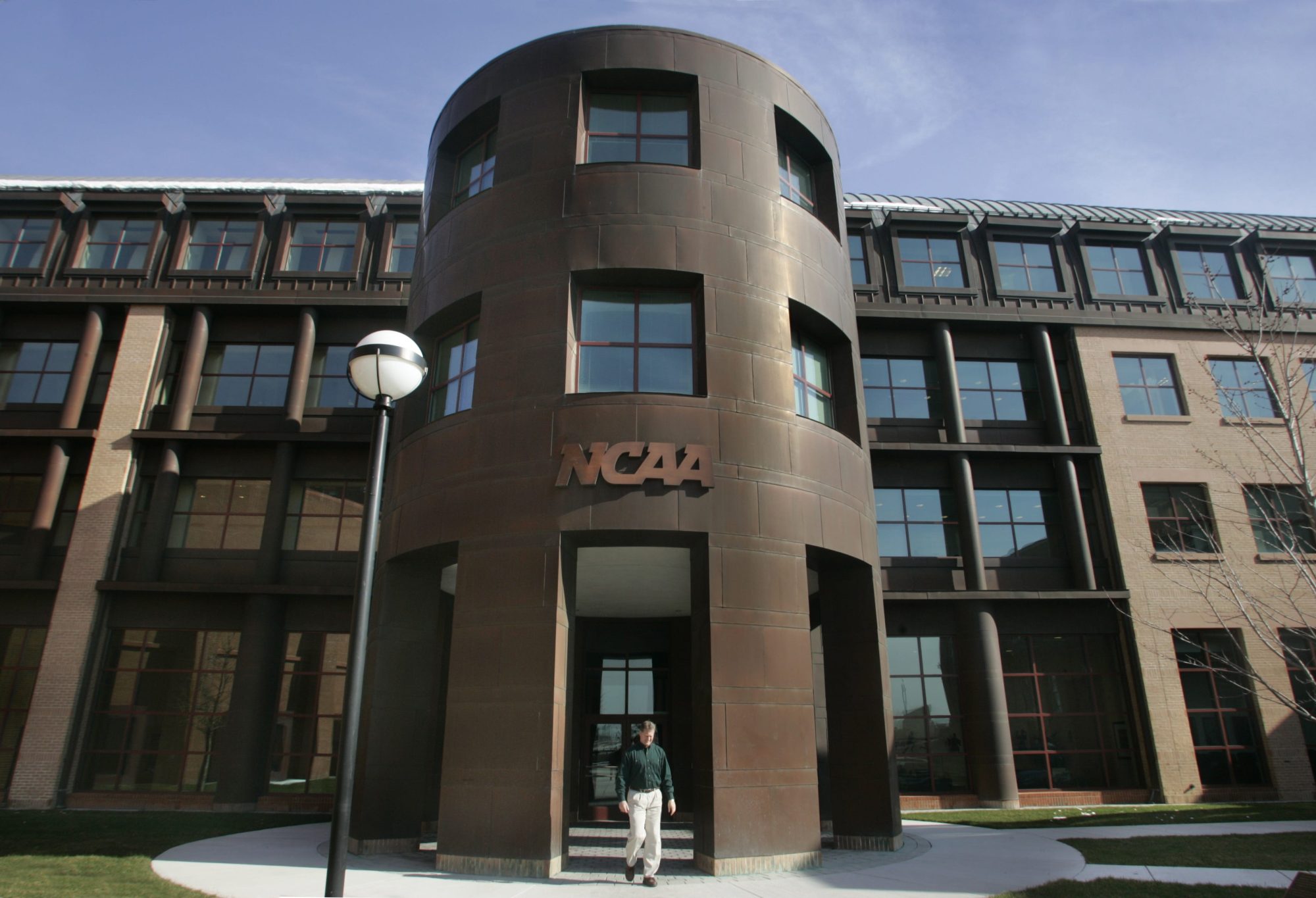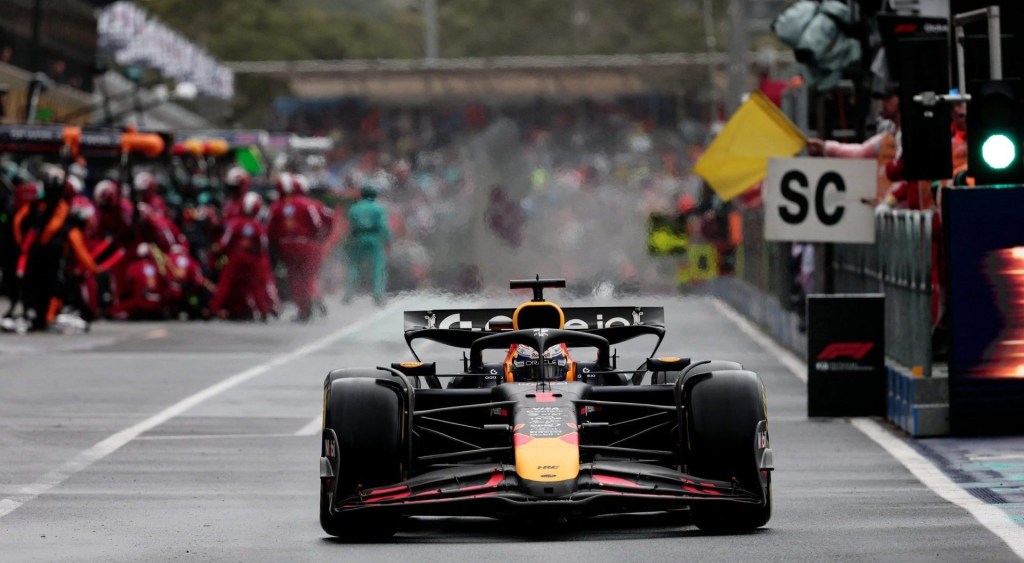College basketball season tipped off on Monday, with teams across the country going head to head.
But the NCAA is facing several, much bigger battles off the hardwood: court cases over athlete employment status and compensation rules.
The NCAA is fighting to preserve amateurism in multiple arenas, from the courts to Congress — where it is trying to get a law passed to stop these cases. But so far, it’s been unsuccessful.
As a result, it is in the midst of a pivotal stretch for at least three major cases over athlete compensation and employment status.
House v. NCAA
On Nov. 3, Judge Claudia Wilken issued a much-anticipated ruling in the federal antitrust case House v. NCAA, granting three proposed classes.
The decision puts the NCAA on the hook for more than $4 billion in combined damages for the proposed classes, according to previous court documents.
The federal antitrust lawsuit, filed in 2020 in California, is seeking damages for athletes who didn’t benefit from NIL rules because they played before the NCAA enacted them.
It’s also arguing that the definition of NIL should be much more broad: Broadcast deals, game promotions, and school apparel contracts would be considered part of NIL because athletes are featured in them.
The classes include:
- Any Division I athlete who has currently benefited from NIL deals, but who also played before rules were changed on July 1, 2021 and therefore lost out on potential NIL revenue.
- Any Power 5 scholarship men’s basketball or football player that played after June 15, 2016 who could have made money from broadcast contracts or video games portraying their likenesses.
- Any Power 5 scholarship women’s basketball player who played after June 15, 2016 who could have made money from broadcast contracts portraying their likenesses.
The case isn’t set to go to trial until 2025. The ultimate ruling could force the NCAA to change its compensation rules to allow for revenue sharing between athletes and athletic departments — and even go bankrupt.
NLRB Case Against USC, Pac-12, and NCAA
On Tuesday, the Los Angeles region of the NLRB will begin virtual pre-trial hearings for a case first filed in 2022 by an athlete advocacy group called the National College Players Association against USC, the Pac-12, and NCAA. The case is an “unfair labor charge” over the misclassification of athletes.”
While official in-person hearings won’t begin until December, USC’s lawyers have said in court documents that they intend to get the case dismissed during pre-trial hearings. (USC filed a formal motion to dismiss, but the NLRB responded saying it would ignore the motion because it was filed after the requisite deadline.)
If the NCPA wins, all Division I basketball and FBS football players would have to be reclassified as employees.
It’s unclear how long the case would take to be settled, given that either side would likely appeal after the trial ends in February. But NLRB general counsel Jennifer Abruzzo signaled her support for athletes’ side in a 2021 memo.
The NLRB could even claim public school athletes are subject to its ruling even though it only has jurisdiction over the private sector. That’s because of the “joint-employer doctrine,” which suggests that multiple organizations can be employers of the same group of people at the same time.
If all conferences and the NCAA have similar relationships to their football and basketball players, the rule could apply. The NLRB recently issued a new definition for its joint-employer doctrine, which could bode well for athletes in this case.
Matt Bewley et al v. NCAA
On Nov. 1, twin recruits of the Chicago State men’s basketball team, Matt and Ryan Bewley, filed a lawsuit in Illinois federal court last week against the NCAA over their denied eligibility after having played for Overtime Elite.
A hearing is set for Nov. 14 to get a temporary restraining order prohibiting the NCAA from keeping them on the bench.
In 2020, the sports media company Overtime established a men’s high school professional basketball team called Overtime Elite, which allowed players aged 16-18 to play as well as receive schooling, the ability to profit off NIL deals, and a salary. It also offered players who wanted to play NCAA basketball the option to receive scholarships, rather than salaries.
The NCAA, however, denied their eligibility despite Overtime’s careful attempt at keeping them within NCAA amateurism rules.
The NCAA’s decision was based on three factors, according to court documents: Players received compensation that “exceeded actual and necessary expenses,” they played on a team that was considered professional, and they played against athletes who considered them professionals. (Court documents noted that other athletes who had played on Overtime Elite have been granted eligibility to play NCAA basketball.)
The case suggests that even if athletes did somehow accidentally violate NCAA eligibility rules, those rules themselves violate antitrust law. Illinois state senator Kam Buckner put out a statement on Monday suggesting the NCAA’s treatment of the Bewley brothers is also in conflict with Illinois’ state NIL law.
The case could ultimately force the NCAA to change those rules altogether, in addition to granting the twins eligibility.
Other Cases Moving Slowly
Two other cases could also force the NCAA to recognize athletes as employees.
A case in Pennsylvania federal court, Johnson v. NCAA, is awaiting an interim ruling. A unionization petition filed by Dartmouth men’s basketball players with the local NLRB is also awaiting a ruling after a hearing last month.






![[Subscription Customers Only] Jun 15, 2025; Seattle, Washington, USA; Botafogo owner John Textor inside the stadium before the match during a group stage match of the 2025 FIFA Club World Cup at Lumen Field.](https://frontofficesports.com/wp-content/uploads/2026/02/USATSI_26465842_168416386_lowres-scaled.jpg?quality=100&w=1024)
![[Subscription Customers Only] Jul 13, 2025; East Rutherford, New Jersey, USA; Chelsea FC midfielder Cole Palmer (10) celebrates winning the final of the 2025 FIFA Club World Cup at MetLife Stadium](https://frontofficesports.com/wp-content/uploads/2026/02/USATSI_26636703-scaled-e1770932227605.jpg?quality=100&w=1024)









